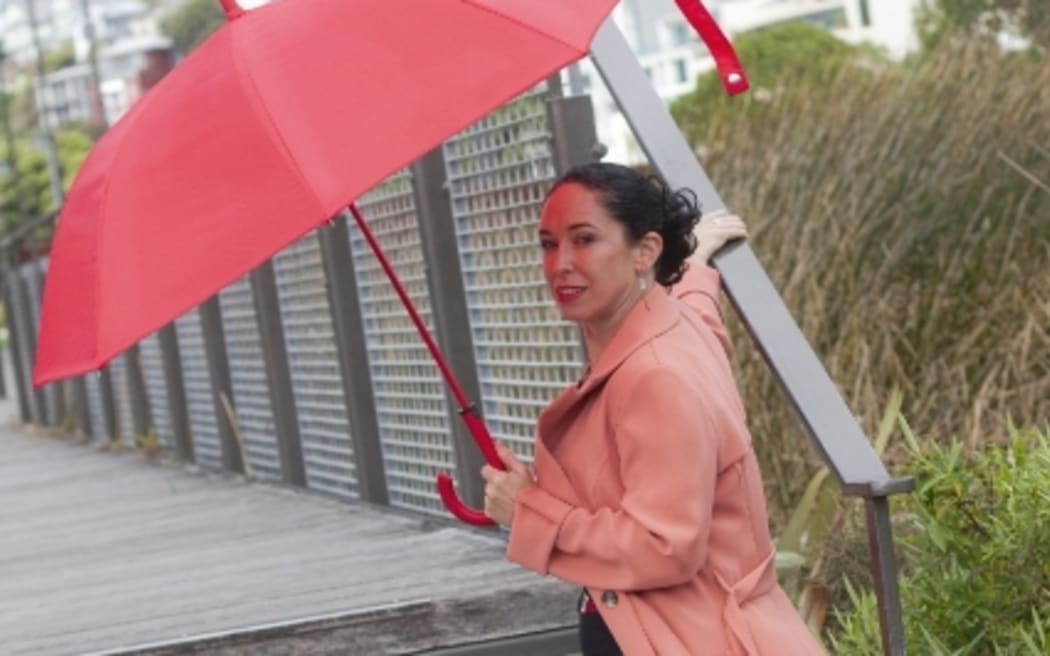
Sex worker Bella Petite says sex workers face everyday discrimination. Photo: Supplied
Sex workers say discrimination still "makes it hell" to get a mortgage, a bank account or simply open a business.
Aotearoa New Zealand Sex Workers’ Collective said with every worker who contacts the organisation, there is always a story of discrimination when trying to perform ordinary tasks.
In 2003, the Prostitution Reform Act made sex work legal in New Zealand, but those in the industry say stigma makes the law obsolete.

Tina May says she frequently faces obstacles in everyday life because of her work. Photo: Supplied
Tina May*, 40, has been self-employed in the escort industry for seven years.
She said when she decided to work for herself and open her business her job title got in the way.
"As soon as I tell them what my business is about and I needed help with this and that, it took them like two to three weeks to reply to me. A lot of us pay taxes as well, but at the same time so many accountants don't even understand. You can just tell when people don't want to help you.
"Even my accountant, he only put my business under entertainment rather than escort. I didn't ask him why, but I did feel weird about it because he's supposed to work for me, not the IRD."
May and her partner recently applied for a mortgage to buy their own place.
But even then, what she does for living seemed to be more important.
"I filled in the form, and I write it down my job as an escort and send it to my mortgage broker and about 15 minutes later he rang me: 'Hey - I know you are open with your job, but knowing your bank manager, she has turned down applications for people in your industry, so you should put it down as exotic dancer'.
"I don't understand why. What's the difference between an escort and an exotic dancer?"
She said the discrimination was attached to the trade.
"I don't know many people that actually are able to get a mortgage through their job, through what we do. But at the same time, I mean, what's the difference between what we do and a lash technician being self-employed?"
Bella Petite* is 43 and has been a sex worker for almost five years.
She said whenever she had to disclose her occupation she could predict the judgement.
"Sometimes they don't even need to say anything because you can just feel it, and it's a feeling of disgust. So, I end up feeling disgusting.
"You know what images are being conjured up in their minds. It's those images of dark, shady, dirty, drugs and alcohol. I don't even drink, for God's sake!" she said.
During the pandemic, Petite tried to arrange an online payment option with her bank, so her clients could securely buy her content.
But the bank considered her occupation "high risk" and she had to go to the Banking Ombudsman.
Petite said the noise of discrimination was silence.
"It took me about a year going through the bank because no one would actually tell me straight: 'No, you can't do that because of the job that you do'," she said.
"So, I was in disadvantage for not even knowing what I was up against, because no one would say it."
Petite said the simple act of enjoying her favourite hospitality spots created anxiety.
"I have this restaurant in Wellington that I like to go, I enjoy the place. And when people there ask what I do, the conversation changes, because I can't say it because of the stigma. The times I've said it, it hasn't always been a good response."
The collective is a not-for-profit organisation that provides information and support for sex workers.
Its founder, former sex worker Dame Catherine Healy, said although much had been achieved in the industry, New Zealand had a long way to go.
"We have dealt with and heard of cases where sex workers have said that they haven't been able to get a loan or open a bank account. So, we have been working with banks proactively - who insisted they are there for everyone, including sex workers."
Healy said the discrimination led many sex workers to cry for help.
"I am choosing to be a sex worker; I'm not choosing to necessarily work in dreadful conditions.
"What I need is recognition that I'm part of society and I need all the protection that everyone else has."
For Tina May, sex workers need a specific support network and more strict legislation against intolerance.
"There should be a department that actually helps us to get through our issues when it comes to discrimination with banking, family court, renting houses, just little things like that.
"It's traumatising, it's damaging your emotions and you have to go through with it and in the end, you don't know the results you are getting," she said.
Bella Petite said a lack of education created a gap in the legislation.
Discrimination against sex workers not only affected those who worked in the industry but all their loved ones, Petite said.
"My daughter, poor thing. The things she had to hear from people, the stuff we received in the mail - it's shocking. No one deserves to go through it.
"People don't care how you got into sex work; they don't care about your story. Many of my clients sit on benches, you know? They forget you are a person and that you are working to survive. Ignorance just puts us all in a box."
*This article uses the workers' nicknames


